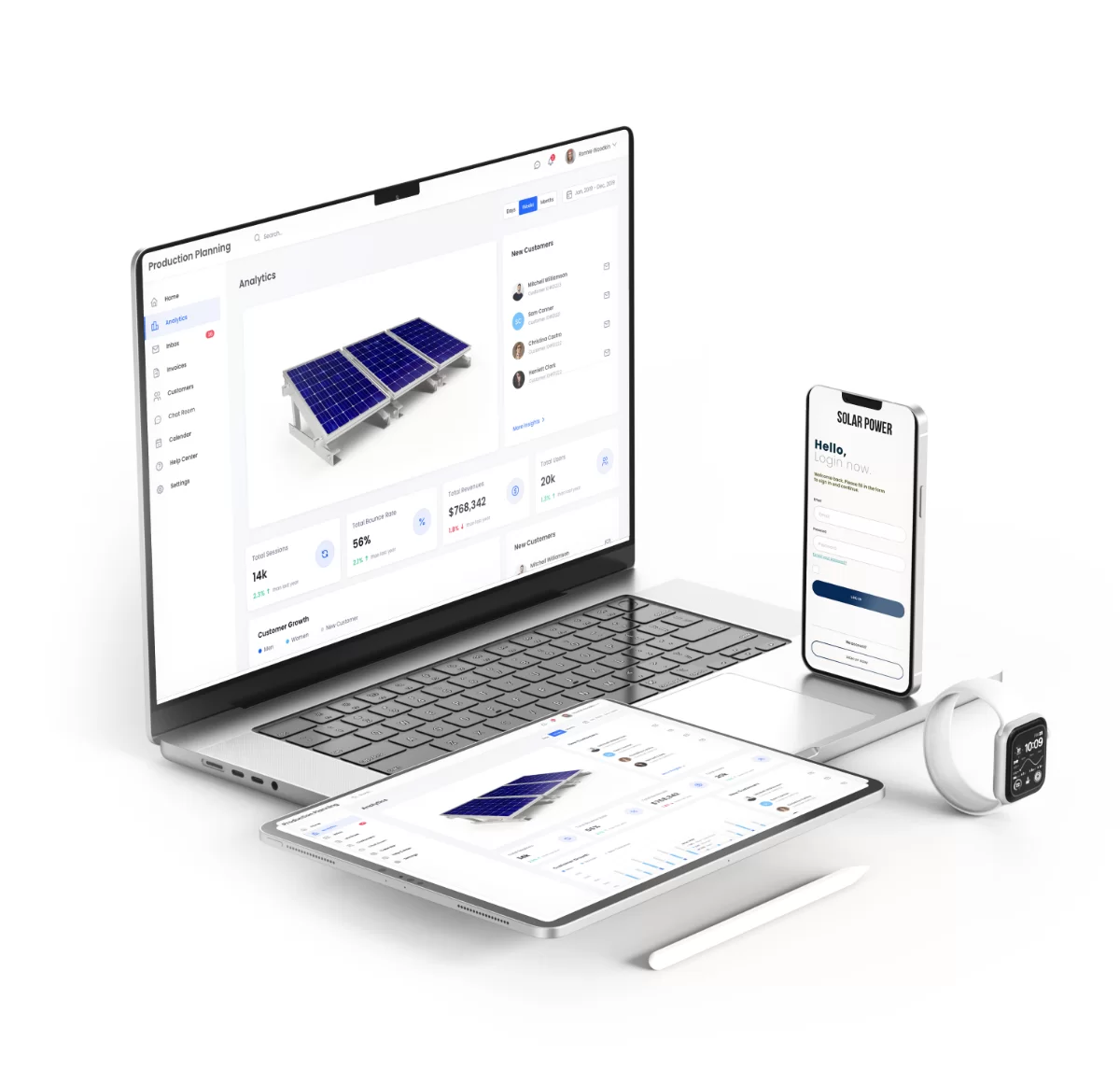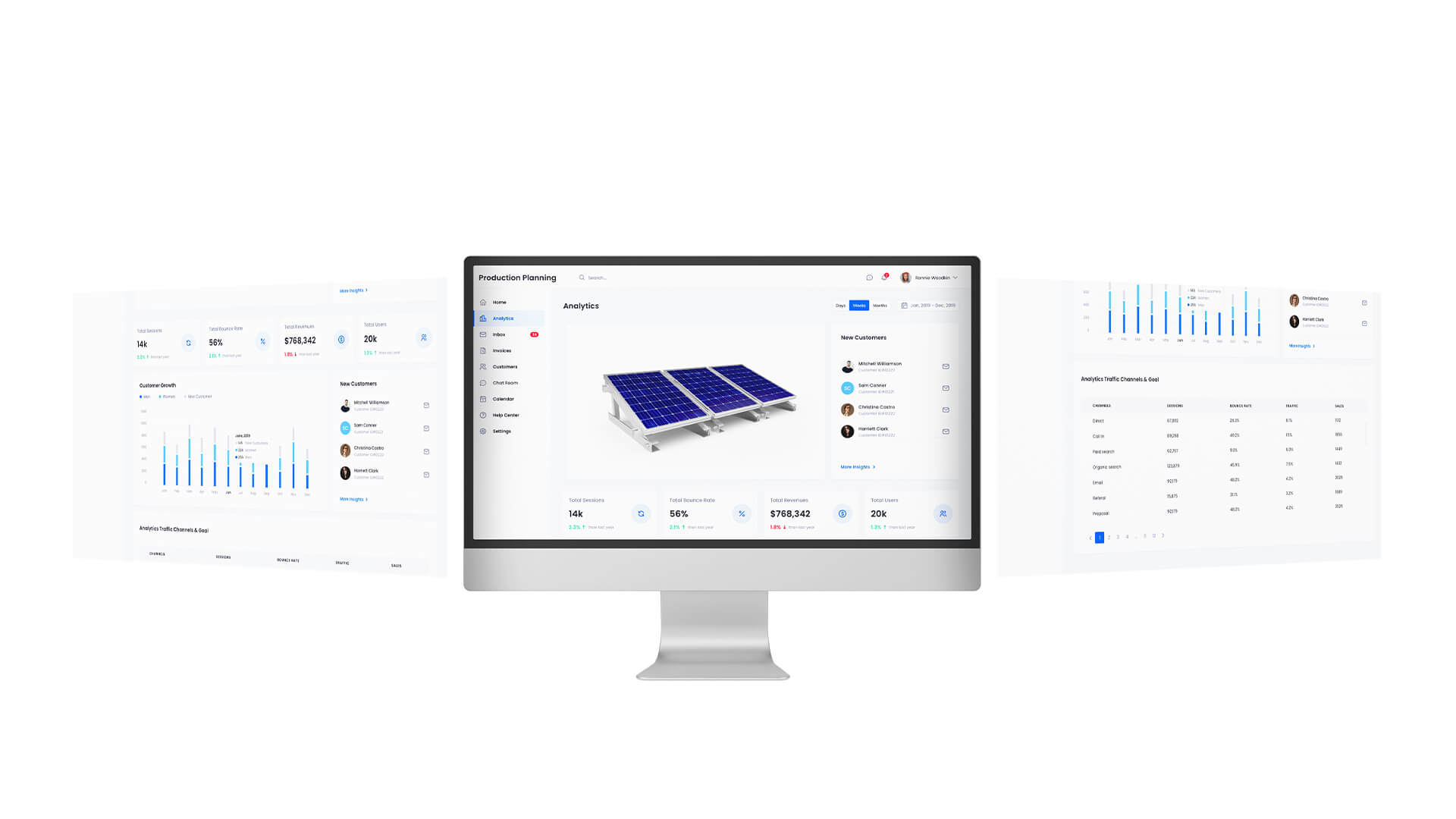Case study
Monitoring Platform for Large-Scale Solar Plants

Highlights
- Charts, periodical reports, and error notifications allow users to remotely monitor solar plants that rely on PV inverters.
- Operational and maintenance costs are reduced by offering a self-diagnosis functionality for the solar inverters.
- The software analyzes the performance of every connected inverter, and factoring in the performance of other, nearby devices can make the difference between false alarms and actual errors.
- The platform gives users remote control over the solar inverters.
Technologies:
ASP.Net, Bootstrap, Typescript, .NET, MS SQL Server
Services:Software Development, Software Architecture, Manual Testing, Automatic Testing, Maintenance, Deployment
5
Team Size14+ Years
DurationManufacturing
Industry
Client Benefits
Intuitive UI
An intuitive user interface design for web and mobile apps that simplifies maintenance and error analysis.
Technical Know-How
An accrescent admin interface that allows the staff to execute administrative tasks directly from the user interface.
Partnership
Long-term collaboration with a constant, self-sustainable core team that ensures the continuity of the project.